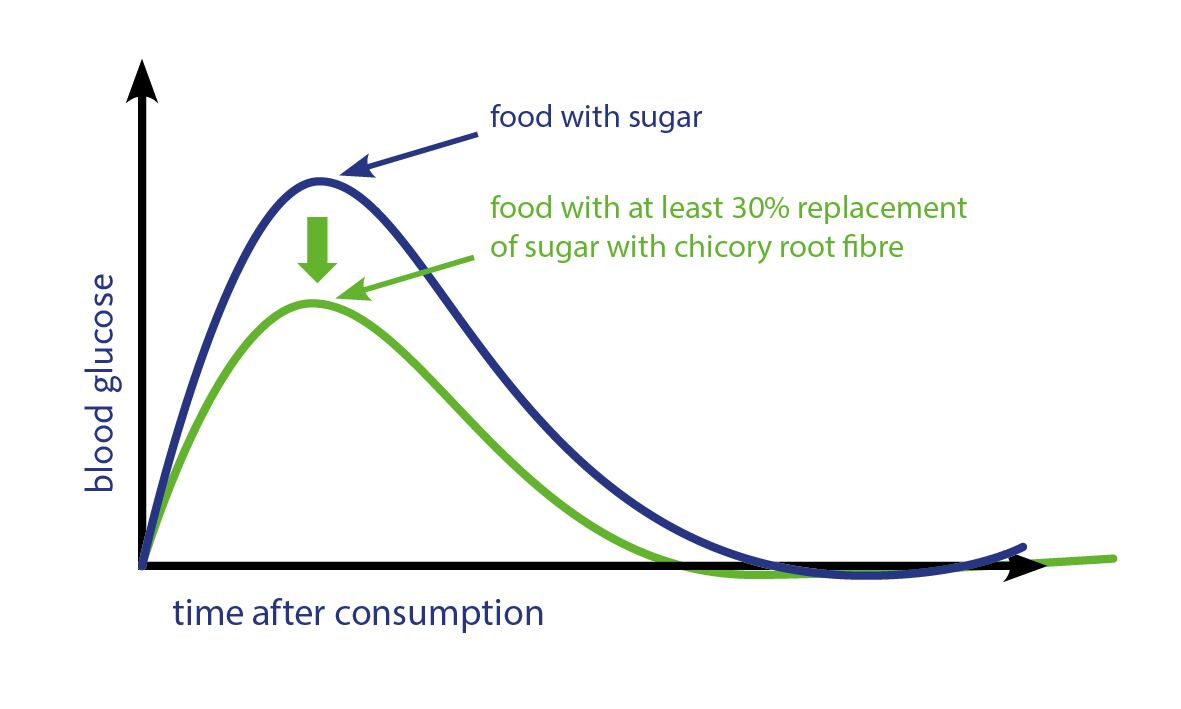Products containing carbohydrate forms like Tereos's fibre, Olygose’s oligosaccharide, Roquette’s wheat and corn starch-sourced fibre or chicory root fibres produced by Beneo-Orafti, Sensus or Cosucra-Groupe Warcoing will be able to take advantage of the glycaemic control claim.
The European Food Safety Authority (EFSA) has over the past two years delivered positive opinions for all of these non-digestible carbohydrates. Now the claims are law.
“…because non-digestible carbohydrates are resistant to hydrolysis and absorption in the small intestine and therefore do not contribute to postprandial [post-meal] glycaemia,” wrote the Commission in the European Journal.
Claim wording
Manufacturers wanting to use the claim must use the approved wording: “consumption of [eg breakfast cereals] containing [name of ingredient] instead of sugar induces a lower blood glucose rise after their consumption compared to sugar-containing [eg breakfast cereals].”
However, the claim can also be used in conjunction with snappier EU nutrition and health claims regulation (NHCR) article 10.3 general health and wellbeing claims, such as ‘more balanced blood glucose rise’, ‘lower impact on blood sugar levels’ and ‘keeping your blood sugar low’.
In consumer research by Sensus, ‘keeping blood sugar under control’ came out as the most attractive to consumers.
Beneo, meanwhile, advocates the inclusion of a blood glucose curve graph on pack.

“Within a quantitive consumer research study in Europe commissioned by Beneo, 80% of respondents indicated that the health claim, in combination with the blood glucose curve of chicory root fibres inulin and oligofructose, was appealing,” noted Katrien Lambeens, product manager, functional fibres, at Beneo.
30% sugar reduction to qualify
To satisfy the conditions of the claim 30% of total sugar needs to be replaced with non-digestible carbohydrates.
Asked whether this level of sugar reduction was easily achievable, Lambeens said: “Beneo’s inulin and oligofructose are ideal sugar replacers…slightly less sweet than sucrose.”
She said inulin and oligofructose could be blended with high intensity sweeteners, stevia and flavours to develop 30% sugar-reduced products without taste or texture tariffs.
Lambeens told NutraIngredients Beneo was having “good contact” with manufacturers who are interested in using the new claim for its inulin and oligofructose ingredients.
“We are finding that major interest comes from manufacturers of products with a healthy positioning, like good-for-you cereal bars. However, even manufacturers of indulgent products are starting to seriously look into sugar reduction, combining it with this new health claim,” she said.
Application areas
Lambeens predicted that the most attractive ‘real life’ applications for the claim would be baked goods, confectionery, cereals, ice cream and dairy, pointing out that Beneo’s chicory fibres are already well known sugar replacers in yoghurts, biscuits, cereal bars and chocolate spreads.
Sensus believes that the European market is ripe for products with a low/no/reduced glycaemic response sell, citing Mintel GNPD data that showed the number of product introductions with this positioning grew by 17% between 2010 and 2015, with inulin-containing low/no/reduced glycaemic products up by 37% during this period.
The company highlighted desserts, ice cream, breakfast cereals, beverages and snacks as the categories with the biggest potential for capitalising on the claim.
Winning over consumers

However, Sensus acknowledged that there may some work to do in terms of convincing consumers that glycaemic response is an important benefit.
In research conducted by the company last year, only 65% of European consumers said they were interested in glycaemic response as a benefit of chicory root fibre-containing products. This compared with 71% for fibre enhancement, 72% for sugar/calorie reduction, 71% for fat/calorie reduction and 73% for digestive health.
Beneo is confident consumers are more interested in carbs with a low score on the Glycaemic Index (GI), which ranks foods according to their impact on blood sugar levels.
“Qualitative and quantitative consumer research shows that consumers are starting to differentiate between ‘good’ and ‘bad’ carbohydrates - similar to what we saw happen to fats a couple of years ago,” said Lambeens.
